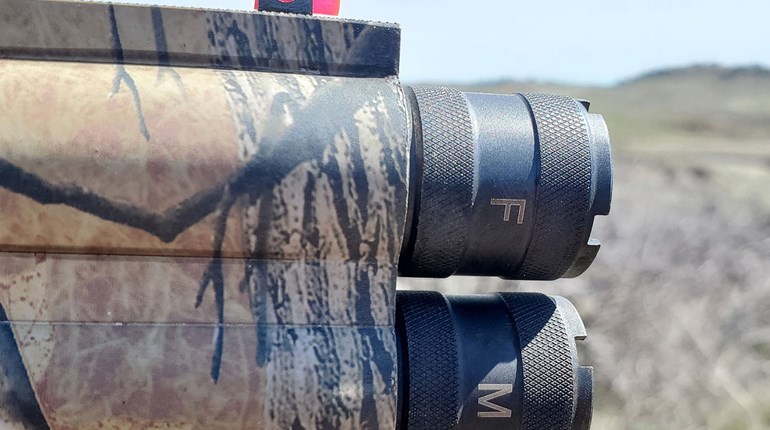
Whether you’re a first-time hunter or someone who’s been doing this for decades, you’re going to make dumb mistakes now and then—we all do. In hunt camp, mistakes can range from mildly inconvenient, to pretty embarrassing, to downright dangerous, and everyone has a story. We asked a few women hunters to tell us their biggest hunt camp blunder—maybe we can learn from someone else’s mistake.
1. A Painful Lesson
A Virginia hunter tells the following tale: “I was headed to a waterfowl hunt in Mississippi. It was my first hunting outing in two years. I had been out of commission for a while due to two serious injuries: a broken leg and a triple-fractured ankle, which required a surgery that left me with nine screws and three plates in my ankle. And, apparently, a much thicker ankle than I’d had in previous years.
“While packing for the hunt, I just threw my boots in my bag, not even thinking there might be an issue. Well, upon arrival in hunt camp, I couldn’t even fit my right foot into the boot. I finally, very painfully squeezed it in there, but I had to leave the boot unlaced — and it was so tight I limped when I walked. The first morning was a total rainout, and I was secretly grateful, because I was sitting in the back of that SUV in a torrential downpour with only one boot on, praying I wouldn’t have to shove my foot back into that right boot to hunt. It was categorically one of the most uncomfortable experiences of my hunting life. I swore I would never make that same mistake again!”
Moral of the story: Try your clothes and boots on before packing for the hunt. Don’t assume that what fit last season will still fit, or that everything is still in good condition.
2. All Choked Up
This is my own hunt-camp blunder. I showed up for my very first turkey hunt with the only shotgun I owned at the time—a shiny, walnut-and-blue 12-gauge semi-auto that would have worked just fine with a little camo tape to camouflage it from sharp-eyed gobblers. I had a box of turkey ammo ready to roll. No problem, right?
Unfortunately, I had been shooting sporting clays the weekend before, and I’d forgotten to change out my choke tube. I showed up to turkey camp with my improved cylinder choke in—several steps down from the full chokes typically used for turkey hunting. Naturally, I’d neglected to bring any other choke tubes.
This was a two-for-one mistake. The first was, of course, showing up without the proper choke tube. The second was a larger mistake I only fully realized later on as I gained more hunting experience—not patterning my turkey gun with the choke and ammo combination I planned to use to make sure everything was dialed in before I left home.
I ended up borrowing a fellow hunter’s 10-gauge pump on that trip. No turkeys were harmed in the making of this story.
Moral of the story: Get your gun patterned or sighted-in before you leave the house. Don’t wait until you arrive in camp to figure out if it’ll work or not!
3. A Series of Unfortunate Events
A West Virginia hunter shared this story: “On safari in Africa, first day, first morning, first hour, we spotted a blesbok. I crawled to a bush, where I rested my rifle and made a very rookie mistake: I didn’t ask for the range, and my ace West Virginia mountain ranging techniques proved useless on the African veldt. The bullet impact was too low.
“In a race to set things right quickly, my professional hunter (PH) and I started running to close the distance and get off another shot. While I was admonishing myself, I was also running, keeping an eye on the animal, and trying to watch where I was stepping. Of course, I couldn’t do all of those things at once.
“I was attacked on the toe by a rock, which was just enough to start one of those long, slow-motion-type falls where you keep trying to right yourself. I finally did a ‘slide into home plate’ on my belly while holding my rifle safely off the ground. I succeeded with my quick follow-up shot on the blesbok, but I had hit a rock hard with my knee in the melée. It swelled until it couldn’t be bent, and the rest of my African safari was done on a painful straight leg that bruised black and blue from my knee to my toes.”
Moral of the story: Slow down and check your distance so you can make the best possible shot. Things can go downhill quickly when you’ve got to chase a wounded animal.
4. Just Following Orders
An Alabama hunter shares her biggest blunder: Doing exactly what her guide told her to do.
“He helped me into the most dangerous elevated blind I’ve ever seen,” she says. “It was basically 15 feet in the air on a wobbly homemade tripod with a bicycle seat. It swayed all day long, and it was so precarious that I have no doubt it would have fallen over if I’d actually shot my .308.
“I couldn’t even climb down because there was no one to stabilize it. I sat there from before daylight until after dark, afraid to shoot and afraid to climb down. I was an experienced enough hunter at that point that I should have told him, ‘no way’ the first time—and that’s exactly what I said when he suggested going back the next day. You know how it is—we never want to be the woman in camp who shows fear or acts like a girl!”
Moral of the story: Don’t let a guide or anyone else lead you into a situation you’re uncomfortable with. It’s your hunt, so speak up and make sure it goes the way you think it should.















































